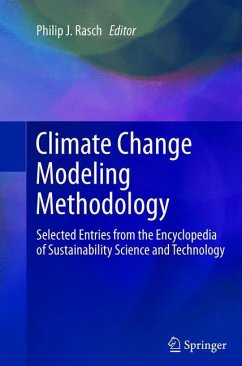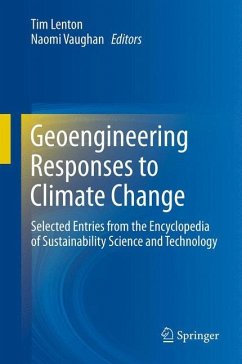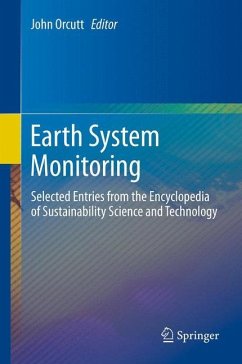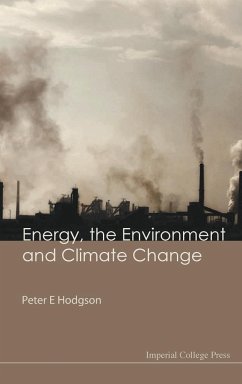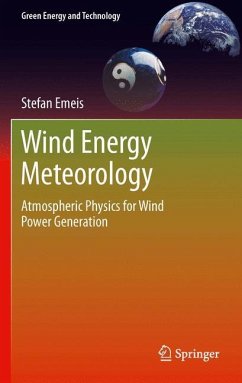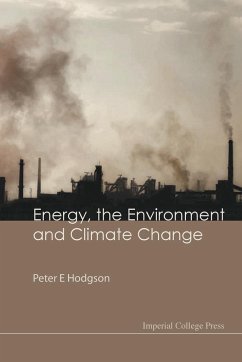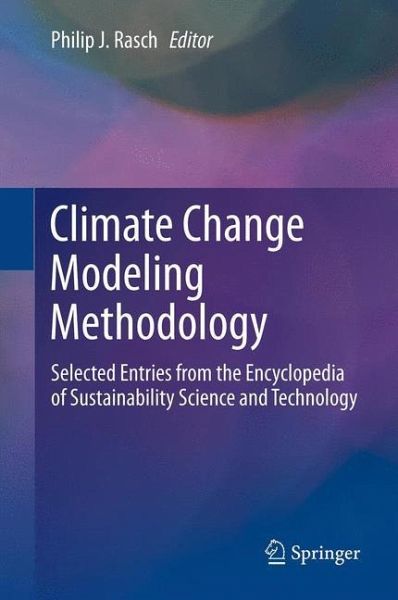
Climate Change Modeling Methodology
Selected Entries from the Encyclopedia of Sustainability Science and Technology
Herausgegeben: Rasch, Philip J.

PAYBACK Punkte
57 °P sammeln!
The Earth's average temperature has risen by 1.4°F over the past century, and computer models project that it will rise much more over the next hundred years, with significant impacts on weather, climate, and human society. Many climate scientists attribute these increases to the build up of greenhouse gases produced by the burning of fossil fuels and to the anthropogenic production of short-lived climate pollutants. Climate Change Modeling Methodologies: Selected Entries from the Encyclopaedia of Sustainability Science and Technology provides readers with an introduction to the tools and analysis techniques used by climate change scientists to interpret the role of these forcing agents on climate. Readers will also gain a deeper understanding of the strengths and weaknesses of these models and how to test and assess them. The contributions include a glossary of key terms and a concise definition of the subject for each topic, as well as recommendations for sources of more detailed information.
Focusing on the latest advances in climate change modeling, this volume of selected papers from Springer's Encyclopedia of Sustainability Science and Technology collates key insights into constructing and evaluating these complex computational techniques.





